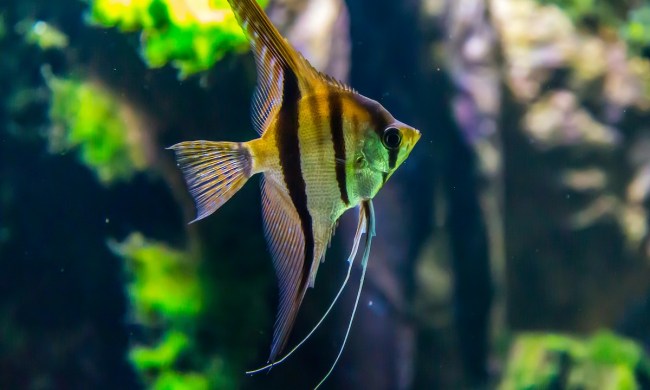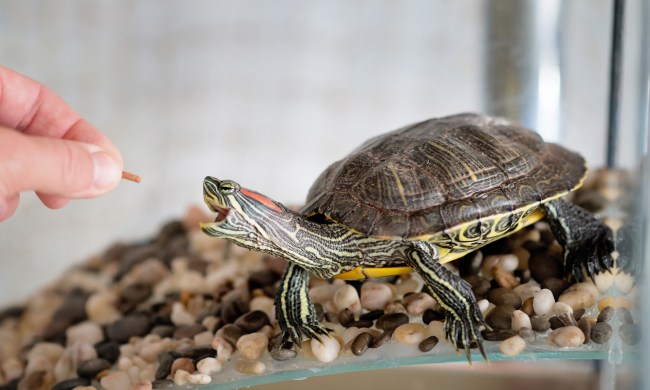Everyone knows that getting a pet means taking on big responsibilities. Almost all animal companions require daily maintenance in the form of feeding, exercise, cage cleaning, and attention. But let’s be honest, some pets have more needs than others. In fact, a few creatures work perfectly for someone who doesn’t have a lot of time to dedicate to their new best friend. Here are the top five low-maintenance pets for those who want an “easy” critter in the home.
I don’t have time for a dog, so can I still have a pet?
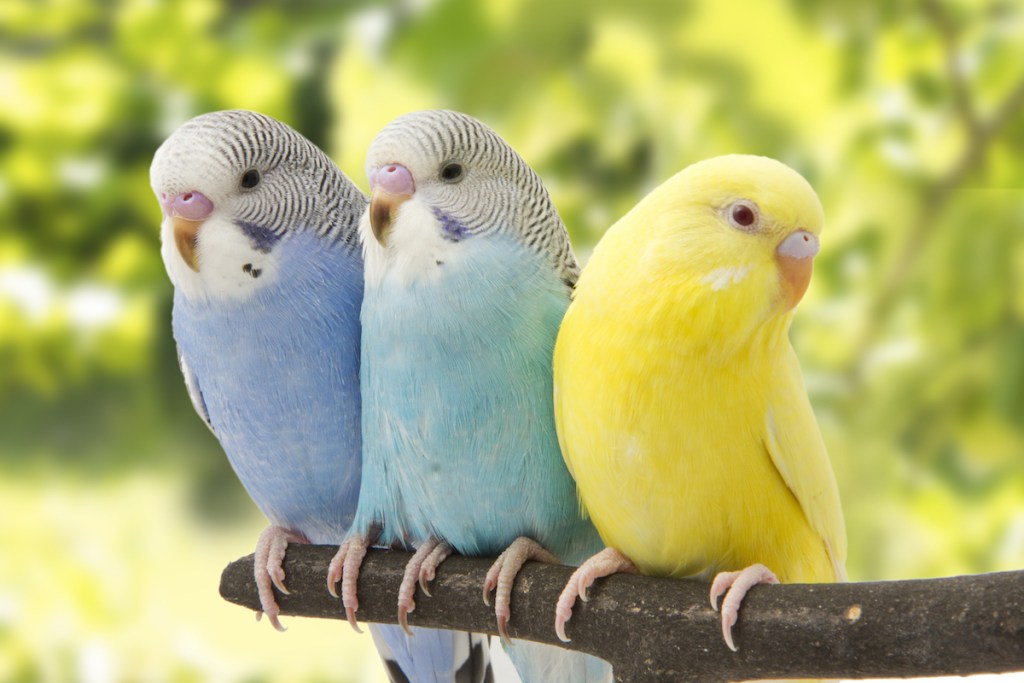
While a puppy might expect walks every two hours, twice daily feedings, and pats every 30 minutes or so, some small pets, reptiles, and aquarium dwellers really don’t mind if you sneak off now and again. So what beasties enjoy plenty of alone time but also make great buddies? Here are five excellent low-maintenance pets for the frequent traveler.
What are the most low-maintenance pets?

Looking for the chillest little guy to complete your family? Check out these animals for your next furry, feathery, or scaly friend.
Budgies

One of the most popular birds to own, budgies make fantastic pets for busy people, especially if you get a pair. Don’t make the mistake of settling for a small cage, though; instead, ensure they have room to move around. Some owners also opt to completely bird-proof a room and let their feathered friends roam under supervision (that means removing fans and wires). Automatic feeders can work for these creatures, provided they only need to be left for a short time.
After a day or so, they really require a human to check-in, particularly to replace water that will get dirty quickly. No matter what setup you have, provide your pet with plenty of mental stimulation like swings, ropes, or toys. You want to keep them occupied or they might act out and start pulling at their feathers or chewing on their dishes.
Hamsters

These guys are well known for loving to run and chew, which means you must supply those opportunities in excess if you’re going to leave your hamster alone. Like birds, you really want a two-legger to check in after a couple of days, but with a solid food and water setup, 24 to 48 hours presents no real challenge.
If you do have a person look in on your hamster, ask that they try to do a little spot cleaning. One of the biggest concerns with leaving your small pet is having them wind up in their own filth. Additionally, you don’t want them to regress and start to fear humans, which is common for creatures who go without exposure to us.
Betta fish
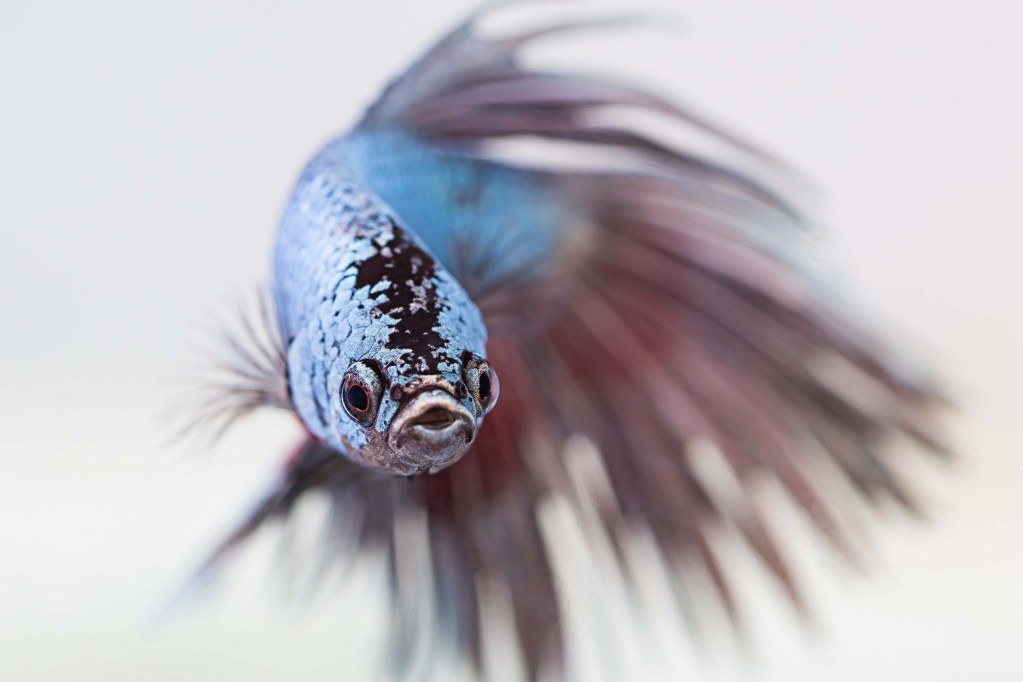
If you’re going to get a betta and leave him for periods of time, you’ll want to find a good tank to accommodate him. A one-gallon won’t work, especially if you can’t be there every day to clean up after him and check that he eats all his food.
Some filters flow gently enough that the water movement won’t disturb him, and this type of cleaning setup allows you to travel without your swimmer for short vacations. Always perform a partial water change and test prior to leaving and get an electric feeder to do the rest.
Turtles
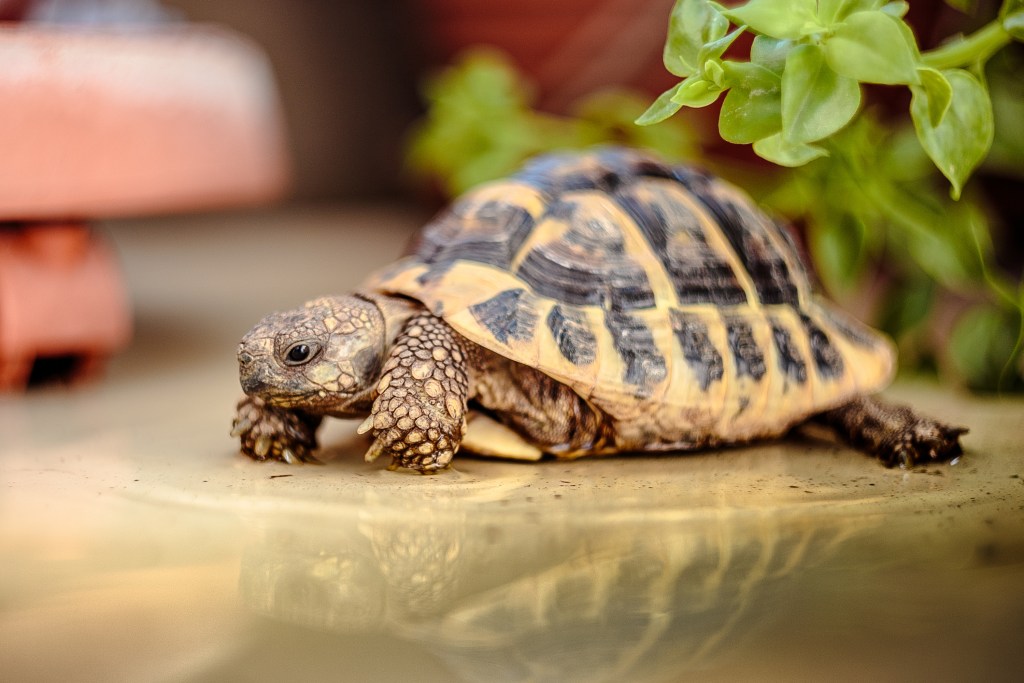
Truth be told, a turtle can go a long time without eating, but you surely don’t want to put your pet in that position. The one thing you can do to make feeding easier is to adjust his portions when you’re not there. For example, when no one is around, you’ll likely not be able to give your aquatic animal live fish.
Instead, you can focus on using a feeder for pellets and stock the tank with good veggies before your departure. Keep in mind that you certainly don’t want to let fresh leafy greens start to rot in your absence, so you’ll need someone to pop in occasionally and remove old plants.
Chameleons

You have to take the humidity into account even more than sustenance for this little lizard. Without an automatic mister, there’s no way to safely leave a cham on its own, but installing one along with an accurate hygrometer will let you take a brief break and not worry about him.
On top of keeping his skin moist, it also lets him drink water droplets off of plants, just like he would do in the wild. As with turtles, some fresh food can be provided if it won’t have time to spoil while you’re away. But like the others, we don’t think you should go more than two days even with a perfect setup.
What is a maintenance-free pet?
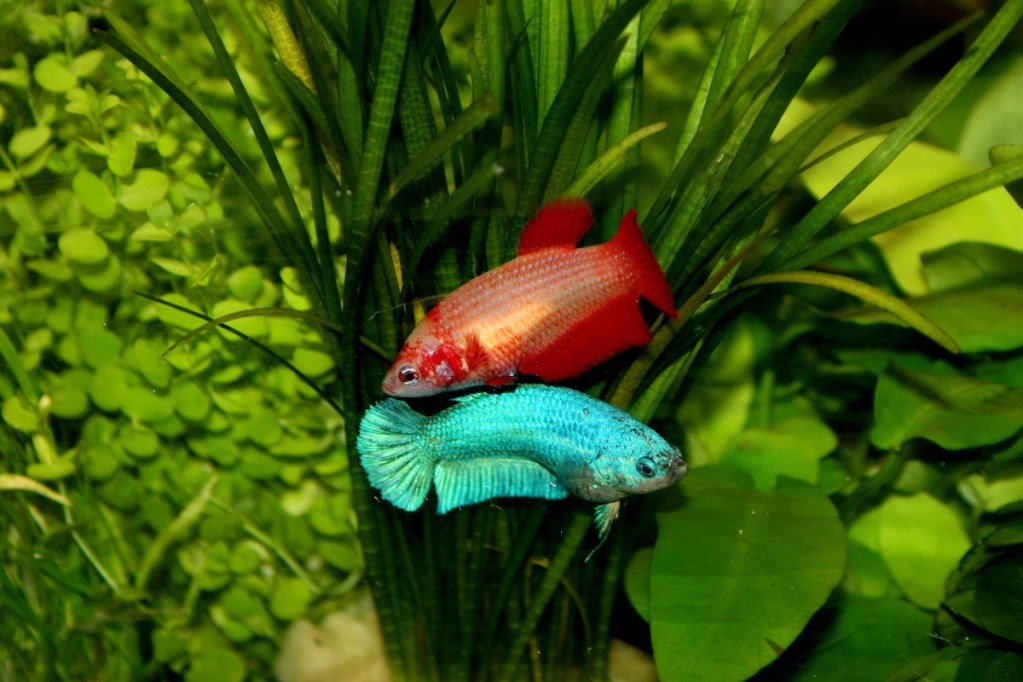
All of these pets come in low on work, but you can take a few steps to make them even easier. We talked a bit about automatic feeders for travel; in fact, installing one will certainly cut down on your daily maintenance. It’s important to spend time with your animal and check in on them every day (when you’re not out of town). So don’t let the mechanical elements keep you from giving the buddy a bit of TLC.
In addition to the feeder, we also recommend a camera or even a few that will allow you to watch from wherever you are. With all pets, never skimp on cleanings, the one place where you really can’t get away with going for simple.
So next time you find yourself endlessly scrolling through “awwws” don’t despair! Even if you work long hours, you can still keep a beloved pet. Instead of the typical four-legged friend, go for one of these easy yet engaging creatures who won’t mind a bit that you have other responsibilities. Of course, you never want to neglect an animal, so do make sure that you have the proper systems in place, both human and machine. A pet sitter and an automatic feeder will do the trick so you can keep living your best life while they live theirs.


